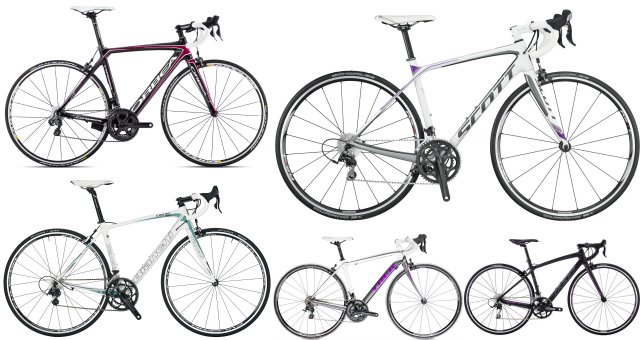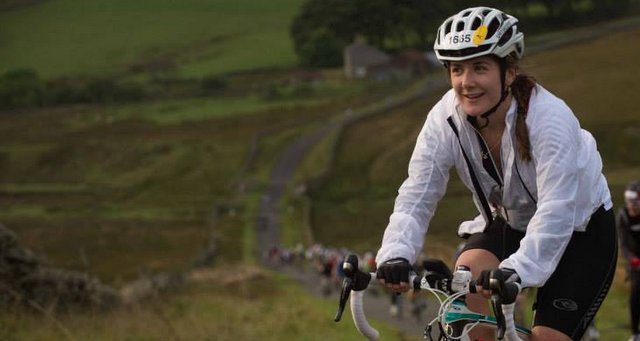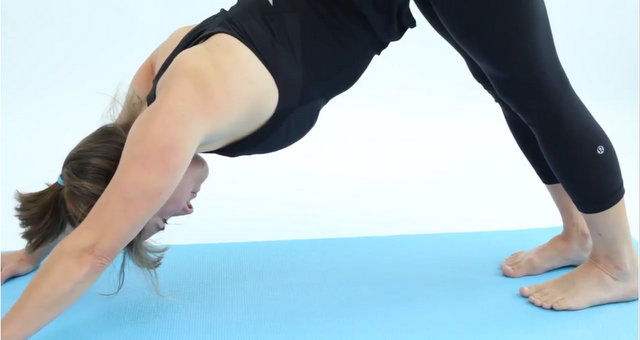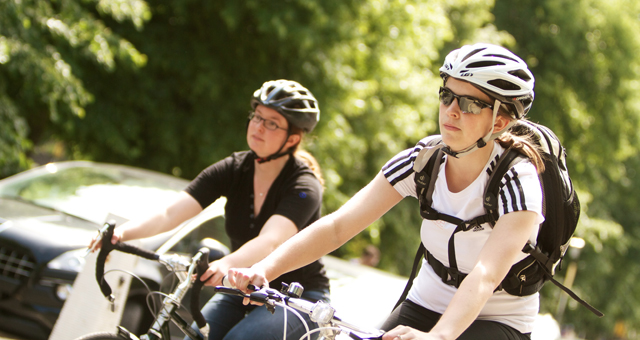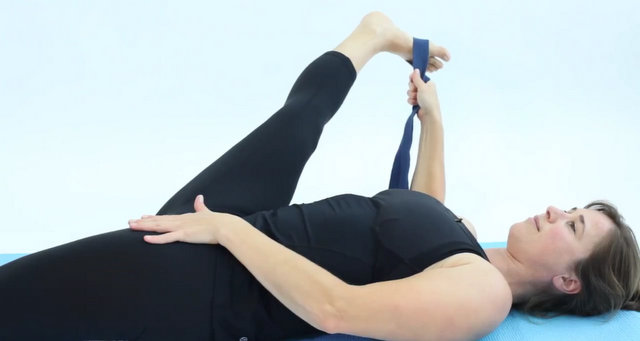Lack of confidence can kill your playtime. Even worse, it can escalate into a downwards spiral, limiting your chances of improvements in fitness, skill and fun.
Trainer Jo McRae shows how a few simple techniques can boost your confidence on the bike.
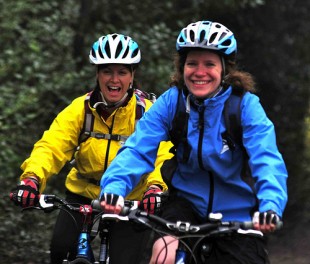
For whatever reason, many women are particularly bad at maintaining confidence in their cycling fitness and ability. I’ve lost count of the number of times I have overheard women meet and greet at training or racing events, only to out ‘down talk’ each other in a bizarre competition of who is the fattest, un-fittest and most hopeless.
This is especially evident in a competitive context, pre-race, probably because of the additional pressure of nerves, but is equally noticeable in other cycling situations where comparisons are made between riders of various abilities, and also of course, with men.
The worst aspect of this is that negative self-talk limits your progress through lack of self-belief. If you are constantly telling yourself how crap you are at something, are you ever really in a frame of mind to make a step-wise plan to get better? For many of us at every level, striving to get better is what we love about our sporting pursuits, so we need to take an empowering view of our riding if we want to maximize the benefits both physically and emotionally.
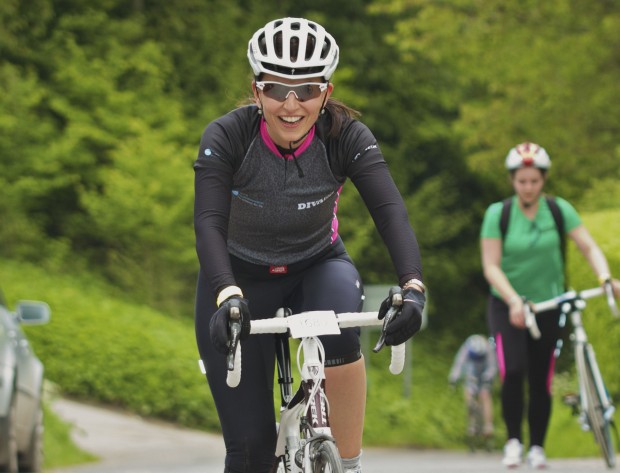
It’s sometimes overstated that women and more emotional than men, but if this is the case we certainly have to learn to harness our emotions for the good, and learn to engage our logical brain if we don’t want to contribute to this irritating and self-perpetuating habit.
Locus of control
‘Locus of control’ is a concept in sports psychology relating to whether you feel in control of outcomes or not. A simple cycling example of an internal locus of control would be having a strong belief that you can improve your fitness, skills and overall ability by applying the right practice and training. Conversely, an example of an external locus of control would be that the goal you are aiming at is simply too difficult for you and you do not have the potential to move towards achieving it.
Clearly the former will give you purpose and drive and direction, even if you are long way from what you are aiming at, while the latter will leave you with a sense of hopelessness and low self-esteem. Fostering an internal locus of control in the longer term can help you improve your confidence, make plans and seek the right help and support in getting better.
When things go well it is of course easier to attribute an internal locus of control but even then I have heard many women underplay their achievements, attributing their success to outside factors such as luck. So the first straight forward thing you can do when something goes right is be pleased, and dare I say it, slightly smug at what you have achieved, attributing your success to things like hard work, a good attitude and sound preparation. Arrogance is not the same as confidence, and I think this is something we sometimes need to remember before we are too modest about our achievements.
When things go wrong it helps to be able to disconnect from the emotional feelings associated with failure and examine what the factors were that led to your disappointment. Sometimes a friend, colleague or mentor may need to prompt you to do this, but it is important to take control back from your emotions if you want to avoid feeling so disappointed again, and even worse, giving up.
When things go wrong, we women can be our worst enemy, wallowing in disappointment for far too long before picking ourselves back up again and dusting ourselves down. Give yourself a timescale to be miserable during which you will wallow as much as you like, surrounding yourself with supportive friends who will empathise. Then, when your time is up, snap out of it and set yourself about the task of analysing and then changing the factors involved.
Harnessing self-talk
In a sports context self-talk refers to the thoughts and words we say to ourselves in our own minds when practicing/training. Being mindful of your own self-talk can help you become aware of how your mind might be sabotaging your self-confidence. Look out for your own self talk and the emotion that is attached to it. For example “I’m not a very good climber” and “I don’t like going downhill fast” are examples of disempowering statements that will fairly permanently leave you behind – literally. The first is disempowering and the second is fearful.
Becoming aware of these thoughts allows you to counter them with opposing or softening statements – a tool often used in cognitive behavioural therapy. When you notice the first thought, you might counter it with ‘I am becoming a better climber’ and with the second you might say to yourself ‘relax’. Using key phrases or words that help you tackle your mental weaknesses will begin to manifest as a stronger and more positive attitude to working on the very things that are holding you back.
Practice, practice, practice
We are used to the idea of training physically but most of us are not so used to consciously training our minds on a daily basis. It’s obvious enough that you will only become more confident if you know how to practice being more confident, so integrating techniques and approaches to improve the way you think and feel about what you are doing is essential if you want to be the best that you can be.
Success breeds confidence
Appropriate goal setting is important in building confidence too, and while we like to set ourselves outrageous challenges I think it is important at times to do something that is designed simply to make you feel good about yourself, and perhaps to illustrate how far you have come. Maybe there is a ride you used to do when you were starting out that was really tough. Why not take in that loop with ease and give yourself a massive pat on the back for how much fitter and faster you are now. Making sure you deliberately include some easily achievable goals in your overall plan will ensure you build the confidence you need to tackle the more challenging ones with a positive mindset.

